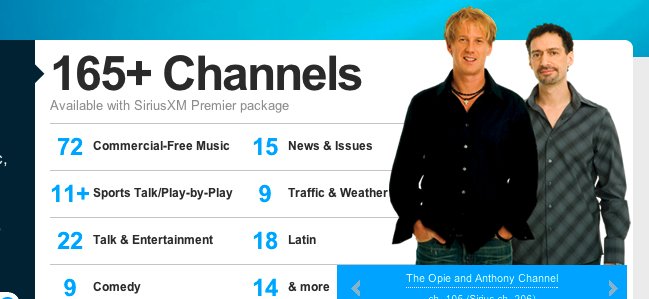3 Count: Rare Victory

Have any suggestions for the 3 Count? Let me know via Twitter @plagiarismtoday.
1: Sirius XM Wins a U.S. Court Ruling Over Pre-1972 Songs
First off today, Jonathan Stempel at Reuters reports that SiriusXM has won a rare victory in its legal battle over pre-1972 sound recordings as a Florida judge has ruled that Florida law does not have a public performance right for pre-1972 sound recordings and does not owe royalties to play them.
The lawsuit comes from members of the band The Turtles, a 1960s band best known for its hit Happy Together. They sued alleging that SiriusXM failed to pay royalties for playing their music and other pre-1972 tracks. Since sound recordings from before 1972 are not covered under federal law, the band sued in three state courts, California, New York and Florida.
Two of those states, California and New York, have handed down rulings favoring the band and ruling that SiriusXM does owe royalties. Florida, however, has taken a contrary opinion. Meanwhile, the New York lawsuit has been granted class action status, allowing other artists to join the case, and a judge has ruled that the band can seek damages under New York law.
2: Judge Dismisses Jordan Brand Jumpman Logo Lawsuit
Next up today, Allan Brettman at The Oregonian reports that a federal judge has dismissed photographer Jacobus Renmeester’s lawsuit against Nike over the iconic “Jumpman” logo its used for its Jordan Brand.
Rentmeester filed the lawsuit in January saying that, in 1984, Nike paid him $150 for temporary use of transparencies of a photo he took of Michael Jordan, who was playing college at the time. He also claims that, the next year, Nike paid $15,000 for a two year license to use the photograph, which featured Michael Jordan dunking a basketball with his legs spread open. In 1987, Nike introduced the Jumpman logo, which Rentmeester says was based on his image.
Nike, however, moved to have the lawsuit dismissed and the judge has agreed, arguing that the components of the image that were allegedly copied by Nike were not original enough to qualify for copyright protection. Rentmeester, however, has already appealed the decision to the 9th Circuit Court of Appeals.
3: Amazon Tweaks Kindle Publishing Royalties To Encourage Page Turners
Finally today, Natasha Lomas at TechCrunch reports that Amazon has announced changes to how royalties will be distributed among those who self-publish through Amazon’s Kindle Direct Publishing platform and have their work read its Netflix-like Kindle Unlimited service, switching from a pay-per-loan rate to paying per page read.
The change doesn’t impact how much royalties Amazon pays, which is a predetermined amount each month based on the number of subscribers. Rather, the change impacts how those royalties are divided up. Traditionally it has been doled out per “qualified borrow”, which looks at users who read more than 10% of a book. However, authors of longer books felt that it short changed them and Amazon says it feels the new model is more fair to all authors and better aligns the interest of readers with those of the authors.
The move only applies to self-published authors and only to reads through the Kindle Unlimited program. Publishers are still handled under the terms of their contracts and direct sales of self-published books will see no change.
Suggestions
That’s it for the three count today. We will be back tomorrow with three more copyright links. If you have a link that you want to suggest a link for the column or have any proposals to make it better. Feel free to leave a comment or send me an email. I hope to hear from you.
The 3 Count Logo was created by Justin Goff and is licensed under a Creative Commons Attribution License.
Want to Reuse or Republish this Content?
If you want to feature this article in your site, classroom or elsewhere, just let us know! We usually grant permission within 24 hours.
